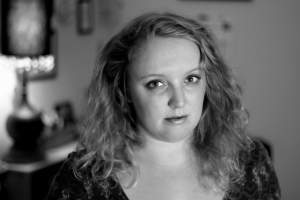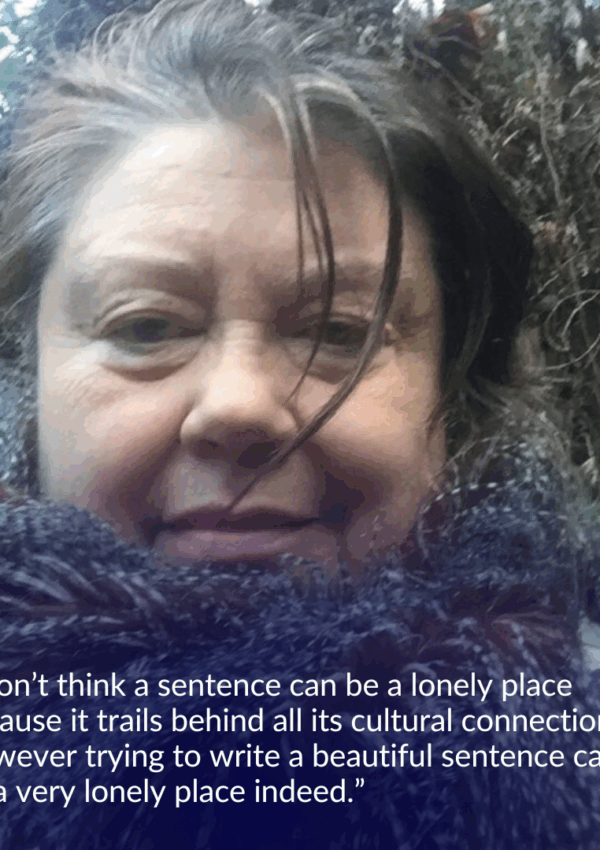Like a lot of people who scribble in notebooks constantly and wear their library cards thin, my early childhood was defined by books. There were books in every room at my grandparents’ house, where I lived until I was six. My grandpa read to me every night before bed, sometimes starting a wild rumpus with Where the Wild Things Are, and sometimes lulling my sleepy eyes shut with Goodnight Moon. My Aunt Julie started reading chapter books to me as soon as my attention span could stand it, filling my evenings with The Ordinary Princess and James and the Giant Peach. It wasn’t long before she was coaching me through the shorter chapters, allowing me time to giggle over fairy antics in No Flying in the House and guiding me through made-up words in Charlie and the Chocolate Factory. I was surrounded by people who understood the importance of reading and writing. They never disturbed me if I had my nose in a book, and they encouraged my tendency to make up wild, imaginative stories and act them out with my dolls and toys.
Then, my mom met someone.
I knew that something was wrong when we visited his house for the first time and there were no books. What did he do in the evenings after the news was over, I wondered. Who read bedtime stories to my soon-to-be stepbrothers? How did anybody entertain themselves around here?
My mom married him anyway—although I saw nothing in him that was worthy of her love—and my once cozy and literate world was thrown into chaos. I wouldn’t say that my new stepfather disliked books, but I would say that he hated them. He would scowl at me as I read, and regularly pronounced my books stupid and me “ignorant” (a word that he did not understand the true definition of) for preferring them to activities like sports and hunting. It didn’t take me long to realize that, like the wicked rulers in my fairy tale books, having a talent or skill that he didn’t also possess was an act of rebellion to him. Fiction was a world that he didn’t understand and therefore could not control, and he hated not being in control.
One morning he came into the kitchen to see me with an open book at the breakfast table. Maybe it was the fact that my Froot Loops were starting to get soggy because I was so absorbed that made him angry, but I was by myself at the table, not reading during a family meal.
That didn’t matter, though. He snatched Lucy and Mr. Tumnus from my hands, snarling, “Why can’t you just eat like a normal person?”
Over the years, I watched as my mother’s collection of paperbacks, stacked on a small shelf in the living room, began to dwindle, moved into storage to make room for statues of deer and baseball trophies. I went on a rescue mission, stealing one here and there and hiding them in my room, not because I wanted to read them right away—they had titles like Finnegans Wake and Sister Carrie—but because I was terrified that they would all vanish.
But as my home life grew more unpleasant, I couldn’t always hide behind piles of hoarded books. I retreated to the thick forest that surrounded the house. There, I desperately searched for my own wardrobe to Narnia, my own bridge into Terabithia—my own portal to any world that wasn’t the one I lived in. And maybe I did find one, and didn’t quite know it, because it seemed like my stepfather never bothered me there, never tried to find me.
With our loyal German Shepherd standing guard, I blended into the trees and undergrowth, becoming part of the natural fairy tale that grew there. Sometimes I was a princess, waiting for a handsome prince to carry me away to his castle (which would include a library like the one in Beauty and the Beast, of course). Sometimes I was a gallant knight, using sword and shield to protect my realm. But most often, I was a witch. I scoured my spell books, collected powerful stones, and gathered plants into old jars—anything that I could use to change my own fate.
Once, I thought I might have done it, that my herbs and made-up chants might have worked—and I saw a bright spot on the horizon when my mom announced that she was pregnant. If I could get to my younger sibling first—read to them, teach them, encourage them—this might become bearable. I might not be so alone.
For my little sister’s first Christmas, I enthusiastically picked out some of my old books, digging up Where the Wild Things Are, Goodnight Moon, and Harold and the Purple Crayon. I was so excited to share them with her—I could already see her eyes lighting up as I read them aloud, and I could almost feel her sitting in my lap as I gently guided her through the words. I wrapped them up in paper that I’d decorated myself, and carefully placed them under the Christmas tree.
But before Christmas morning ever arrived, my stepfather brought my painstakingly selected and wrapped gifts back to my room, dumping them unceremoniously on the bed.
“You’re supposed to buy Christmas gifts,” he said. “Not give away your old garbage.”
I ignored the lump in my throat as he left. Blinking back hot tears, a feeling that was at this point was so, so familiar, I tore the paper off of my books, crumbled it up, and threw it out. My books were returned home, back to my shelves where they belonged. If I couldn’t share them, I would at least protect them, as they had me.
It would have been easy, at that point and many others, to give in to my stepfather’s expectations. To layer on lipgloss and masquerade as the bubble-headed small-town girl that he felt I should be. To pretend that my interest in words had waned and spend my time pursuing rifle-toting boys who drove rumbling diesel pick-ups and flew rebel flags. It would have been easier, much easier, to rewrite myself as someone he would approve of.
But I didn’t give in, even as my stepfather tightened his frantic grasp, his need to control; even as my sister grew into a child who preferred television to books. In an act of defiance that my previous upbringing never could have inspired, I continued to read. Although figuring out how to do it safely took a while, I learned to read only in my room or while hiding in the same forest that had provided shelter for my childhood games of pretend. I learned to use school as an excuse for having a book out. I learned to squirrel notebooks under my mattress and in my closet, hiding the fact that I was writing stories almost as much as I was reading them.
But above everything else, I learned to take hope and courage from the characters who kept me company. From Cinderella, from Matilda, from Sara Crewe, and from Harry Potter living under the stairs. As mistreated as they were by their terrible families, they always emerged triumphant. They were the heroes of their stories, and that meant that I was the hero of mine, too.
 Katie J. Schwartz was raised in a small Midwestern town and now lives in another, frightfully similar, small Midwestern town. She has a Master’s degree in Professional Writing. Her creative works have recently appeared in Journey Literary Magazine, Adanna Literary Journal, Black Fox Literary Magazine, and The Writing Disorder.
Katie J. Schwartz was raised in a small Midwestern town and now lives in another, frightfully similar, small Midwestern town. She has a Master’s degree in Professional Writing. Her creative works have recently appeared in Journey Literary Magazine, Adanna Literary Journal, Black Fox Literary Magazine, and The Writing Disorder.
Blog: katiejschwartz.wordpress.com
Twitter: @katiej_schwartz
Instagram: @katiej_schwartz
Goodreads: goodreads.com/katiej_schwartz
Katie’s poetry appears in Black Fox Issue 12.



